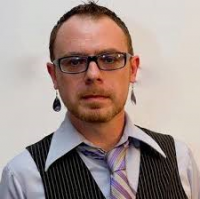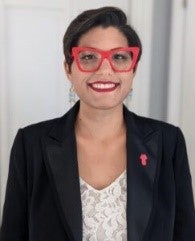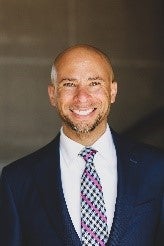The “Aesthetics and Anti-Racism” Lecture Series (Spring 2022)
The “Aesthetics and Anti-Racism” Lecture Series engages topics of identity and body politics, presentation and representation of a multitude of bodies, and the intersecting harms experienced by these bodies and communities.

“Profiling Surfaces”
This talk considers how the racial profile that presumes to arrange predictive knowledge for how to use the body as an index for capacity and pathology also enfolds a sartorial dimension. That is, in some cases fabric might as well be flesh, projecting onto racial, colonial others an interior truth of criminality, deviancy, or lawlessness. From the hoodie to the hijab, clothes not only dramatize the materiality of bodies, but also demonstrate that such materiality is itself animated by racial histories of abstraction.

“The Roots of Our Work: Liberation Movements and Academic Spaces”
Disciplines in academia such as Ethnic Studies, Women, Gender & Sexuality Studies & Queer Studies have their roots in activist movements and saw their creation of these disciplines as the “academic arms” of liberation movements. Even with these disciplines, we too often forget the roots of our work. This talk weaves together poetry and scholarship to argue for activism both inside and outside of academic spaces.
“The Activism and Anti-Racism” Lecture Series (Fall 2021)
The “The Activism and Anti-Racism Series” focuses on how research and activism drives policy, law, and initiatives in Idaho, and how racism is embedded in societal structures of oppression.

“We are Living This: Centering Community Narratives in Anti-Violence Policy Research”
This lecture briefly addresses some perspectives of research to center community narratives addressing Missing and Murdered Indigenous Persons (MMIP) and how this informs policy and collaborative governance.

“Balancing Academia with Politics: An insider’s view on Idaho’s anti-CRT legislative push, and anti-racism in Idaho”
In 2021, the Idaho Legislature passed HB377 seeking to outlaw the public instruction of “divisive concepts,” like critical race theory (CRT). The Idaho legislature concluded that the “Tenets outlined in…CRT…inflame divisions…in ways contrary to the…well-being of…Idaho and its citizens.” Indeed, addressing racism in Idaho is an ongoing effort. While conceding that public and political discourse is unable to tackle the ideas of critical race theorists on the merits, the lecture will explore how Idaho’s political discourse can (and must) advance beyond the Kendi-zeitgeist.

This discussion focuses on the importance of including BIPOC voices in environmental and climate justice issues in Idaho and how environmental racism silences those voices. Irene Ruiz will talk about how the newest Latinx chapter Vision 2C Resource Council and Idaho Immigrant Resource Alliance are working on amplifying these voices through their Farm worker Justice Campaign and COVID-19 rapid response work.